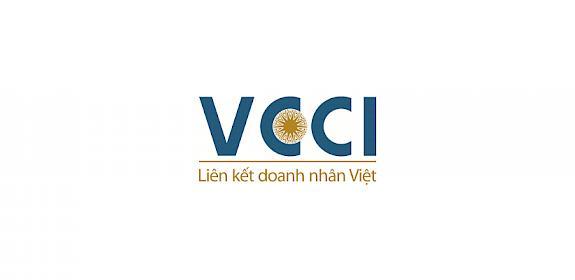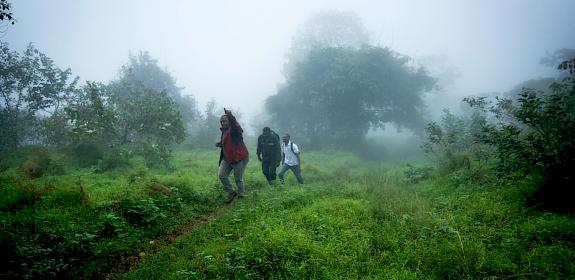Transportation and logistics sector lends support to global efforts tackling wildlife crime
Bangkok, Thailand, 28th January 2015—Representatives from across the transportation and logistics sector meet later this week in Bangkok for a consultative workshop together with Customs officials, supply chain experts and wildlife professionals in order to find actionable solutions to deter wildlife smuggling activities while strengthening supply chains and corporate policies.

Delegates from key logistics companies, airlines, couriers and transport associations are joining the two-day workshop, which is being convened by TRAFFIC and the World Customs Organization (WCO), with the support of the United States Agency for International Development (USAID) and the Wildlife Trafficking Response, Assessment and Priority Setting (TRAPS) Project.
Transportation is the backbone of global trade, and traffickers in wild animals and wildlife products rely heavily on logistics, land, air and sea carriers to smuggle illicit goods. Companies from the transportation and logistics sector can therefore play a critical role in identifying and strengthening key risk points in the supply chain.
The ivory trade is just one example of how illicit trafficking can impact negatively on a species. In African Elephant range countries more than 20,000 elephants are killed every year – a massacre fuelled by the greed of organized networks that trade in illegal ivory. This kind of environmental crime is eroding the rule of law, decimating the world’s natural heritage, and eliminating many economic opportunities for local communities that depend on these critical resources.
“Together TRAFFIC and the WCO are spearheading a bold new initiative with the transport sector to prevent and deter illegal trade in wildlife products,” said TRAFFIC’s Nick Ahlers, Project Leader of Wildlife TRAPS.
“There has been worldwide condemnation of the rampant poaching of elephants, tigers, rhinos and other iconic species, and now the transport sector is using its combined might to prevent the transport of threatened wildlife and their associated products across the planet.”
The WCO is a key agency in the global effort to stop wildlife crime, acting as an interface with private sector transportation and logistics companies whose members are on the frontline in detecting and inspecting illegal shipments.
“Given the sheer volume of global trade, Customs authorities rely on information and intelligence to combat wildlife trafficking, and this week we are developing the means by which the legitimate transport sector is best able to support co-ordinated international efforts against this growing crisis,” said Leigh Winchell, WCO Deputy Director for Enforcement and Compliance.
The scale of the challenge is considerable, with millions of cargo containers being transported by air and sea services every day. According to reports, approximately 38 million tons of air cargo were to be transported in 2014, and it is estimated that global container port throughput will exceed 840 million twenty-foot equivalent units by 2018.
Faced with mountains of cargo moving around the world, Customs, other law enforcement agencies and their partners have their work cut out for them. Currently, most seizures of containers carrying contraband are made through a combination of targeted risk assessment, combined with good intelligence, and random selection.
The TRAFFIC/WCO workshop follows shortly after the announcement of the creation of a taskforce under the ‘United for Wildlife’ banner by his Royal Highness Prince William of the United Kingdom, which is specifically designed to work with the transportation sector. The outcomes from the Bangkok meeting will be shared with the newly created task force.
“We are pleased to see how the global transport industry is becoming part of the co-ordinated international response to the poaching crisis that seeks to put an end to wildlife trafficking,” said U.S. Embassy Chargé d’affaires W. Patrick Murphy.
Notes:
Countering illegal wildlife trade: Collaborative actions along transportation and supply chains. Outcomes of the workshop organized by TRAFFIC, through the support of USAID and in collaboration with the World Customs Organization (WCO) and IUCN. Bangkok, Thailand, January 2015.
1. About TRAFFIC: TRAFFIC, the wildlife trade monitoring network, works to ensure that trade in wild plants and animals is not a threat to the conservation of nature. TRAFFIC is a strategic alliance of IUCN and WWF.
2. About USAID: The United States Agency for International Development (USAID) is responsible for the majority of overseas development assistance from the United States Government, and works to end extreme poverty and promote resilient, democratic societies while advancing security and prosperity for America and the world. USAID’s Biodiversity Policy, announced in July 2014, describes the fundamental importance of biodiversity to human well-being, and the value of conservation approaches in advancing the Agency’s development objectives.
3. The USAID-funded Wildlife Trafficking, Response, Assessment and Priority Setting (Wildlife-TRAPS) Project is an initiative that is designed to secure a transformation in the level of cooperation between an international community of stakeholders who are impacted by illegal wildlife trade between Africa and Asia. The project is designed to increase understanding of the true character and scale of the response required, to set priorities, identify intervention points, and test non-traditional approaches with project partners.
4. About the WCO: Representing 179 Customs administrations around the world, the WCO is the steward of international Customs standards and the central forum for co-operation and dialogue on Customs matters. Its main function is assisting Customs administrations to achieve their objectives, especially effective application of Customs controls while efficiently facilitating legitimate trade.
5. About the WCO Environmental Programme: Fighting wildlife crime at the border requires the application of the same techniques as with other crimes. Controlling cargo and persons crossing borders should be based on intelligence analysis and risk profiling. This necessitates a certain level of well-functioning Customs structures, in order to allow for effective enforcement. When it comes to wildlife, activities include raising awareness of the issue among frontline Customs officers and other enforcement agencies, organizing training to improve their targeting and identification capabilities, promoting exchange of information and partnerships, leading international enforcement operations focusing on wildlife smuggling, and developing practical guidance in the form of various training resources.
6. Estimate of global shipping volumes: http://www.drewry.co.uk/news.php?id=293
7. Illegal Wildlife Trade: Leadership by the transportation and logistics sector, an introduction and discussion document




